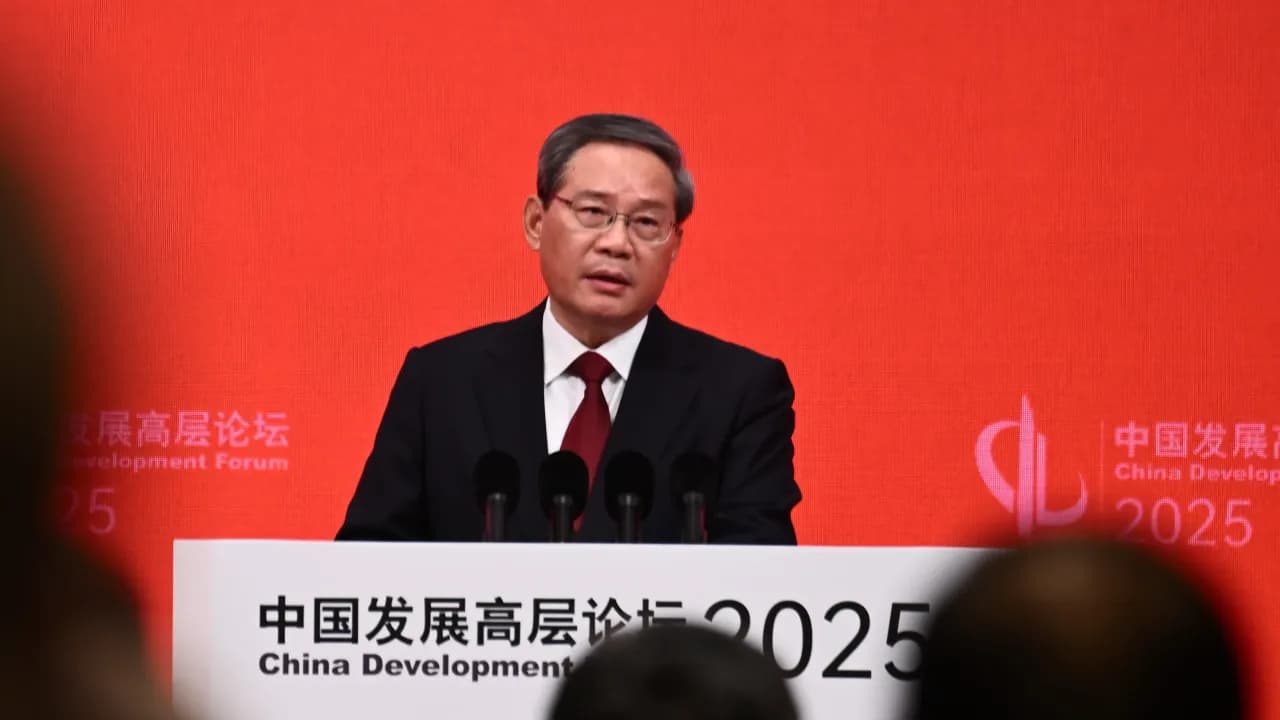Li Qiang emphasized China’s economic confidence and outlined plans to turn the country into a consumption powerhouse.
Chinese Premier Li Qiang on Wednesday called for renewed global cooperation on trade, warning against the rising trend of using trade as a political or security tool.

Speaking at the World Economic Forum’s annual meeting in Tianjin, which is often referred to as “Summer Davos,” Li said globalization “will not be reversed” and urged countries to work together to reshape international rules.
According to a CNBC report, Li did not directly mention U.S. tensions or the Israel-Iran conflict but said that countries should stay on the “right path” by avoiding unilateralism.
He also highlighted a recent international mediation agreement signed by more than 30 nations in Hong Kong as an example of applying “Eastern wisdom” to global dispute resolution.
In his remarks, Li expressed confidence in China’s economic outlook and said the government would roll out policies to position the country as a “mega-sized consumption powerhouse,” expanding beyond its traditional strength in manufacturing.
The event drew several global leaders, including the prime ministers of Singapore and Vietnam, as well as top Chinese business executives such as JD.com founder Liu Qiangdong and TCL chairman Li Dongsheng.
Li’s remarks came as China unveiled new guidelines aimed at boosting domestic consumption, signaling broader efforts to revive economic momentum.
On Wednesday, China released new guidelines aimed at boosting domestic consumption using financial tools.
The document, jointly issued by six government departments and the central bank, included pledges to support employment, household incomes, and financing for consumer-focused companies.
The central bank said it would encourage banks to offer more efficient credit services and innovate new consumer finance products while managing risk.
Measures would also include using tools such as reserve requirements, relending, and open market operations to maintain liquidity and lower financing costs.
The SPDR S&P 500 ETF (SPY) is up 3.8% for the year, while the iShares MSCI China ETF (MCHI) has gained 20.8%.
For updates and corrections, email newsroom[at]stocktwits[dot]com.<
